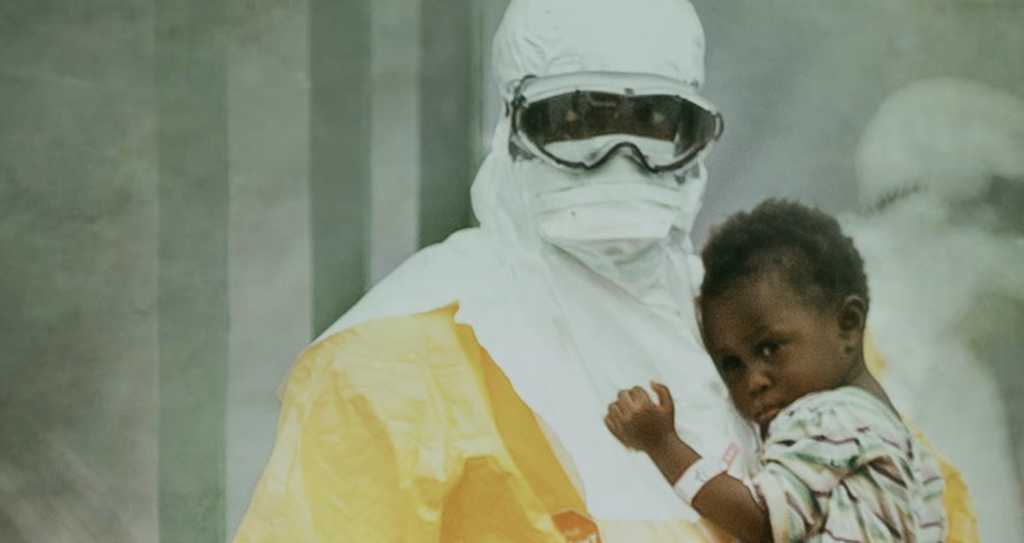Evangelist Franklin Graham had a knot in his stomach and was overtaken by hopelessness after he received a call in July 2014 notifying him that one of his very own staff members had contracted Ebola, the deadly hemorrhagic fever.
It was a challenging moment that truly shook Graham to his core.
“I didn’t even know how to pray. It was a desperate kind of prayer, ‘God why?'” he candidly admitted during a recent interview with Faithwire. “Because I knew Dr. Kent Brantly was going to die, and there was nothing I could do. My faith was very thin at that point (and I felt no hope).”
Little did Graham know that his valiant effort to save Brantly — a medical missionary serving in Liberia when the Ebola crisis touched off in 2014 — would pay off, and that his bold choice to keep his personnel in the region would save lives.
A new documentary titled, “Facing Darkness” will tell the unbelievable story surrounding Liberia’s battle with Ebola and the role that Franklin’s organization, Samaritan’s Purse, played in helping fight against the disease. Set for release nationwide during a one-night-only showing on March 30, 2017, the movie will take viewers deep inside the harrowing ordeal.
Watch the trailer for “Facing Darkness” below:
Graham’s staff was already working in Liberia when the Ebola outbreak took shape in March 2014.
“We always work in difficult places … but Ebola was something totally different,” he said. “All of my staff in Liberia were working on multiuple projects and none of those projects (involved) Ebola.”
So, when Graham first learned of the growing epidemic, he was understandably nervous, wondering what his organization would be getting into if his staff started working to combat the hemorrhagic fever.
“I had a knot in my stomach,” he said, as he wondered, “What in the world are we getting ourselves into? This is so dangerous and the chances of you dying are at 80 to 90 percent.'”
Graham knew the decision to stay in Liberia and to double down would be a dangerous one, but he also recognized that his organization was uniquely equipped to help the masses who were desperately in need of care.
“There was a side of me that said, ‘Run, don’t get anywhere near it,'” Graham said. “But at the same time, I have to look at Jesus Christ. When Jesus came to this Earth … he came for the purpose of dying for our sins … he shed his life and died on the cross for our sins.”
Despite the dangers, Samaritan’s Purse stopped all of its other programs in Liberia and diverted its full efforts toward combatting Ebola. At first, Graham said no one in the U.S. paid much attention to the problem until Brantly got sick — an event that left many Americans worried the virus could soon come to the states.
It was July 23, 2014, when Brantly starting feeling feverish, had an upset stomach and stayed home out of abundance of caution. While he didn’t think he had Ebola, he had been treating Liberian patients and the possibility was certainly not unthinkable. Then, after an official test was ruled positive for the virus, the race was on to save his life.
As Graham recounted — and as the documentary will show — the quest to bring Brantly home for treatment was marred by complexities and controversy, as not everyone was enthusiastic about bringing a man with Ebola onto U.S. soil.
“There was very little hope at that time. There was no way to get him back, as no airlines wanted to carry him,” Graham said. “We have an insurance policy that a plane would go anywhere in the world to pick up an infected person … (we) called them and said, ‘Yeah, we’ll go to Liberia. What does he got?'”
But once Samaritan’s Purse told the carrier that Brantly had Ebola, the insurer reportedly refused and simply told the organization to sue if they didn’t like that answer. And problems soon worsened for Graham, as another American missionary — Nancy Writebol — also contracted Ebola, leaving the evangelist in an unimaginable position.
“All of the sudden I have two people with Ebola dying and I can’t get them back to the United States,” he explained. But he said he turned to prayer and “God began to open up doors.”
Graham said his staff called everyone possible to ask for help, reaching people at the lower levels of the State Department who had some power and were able to make things happen. Soon, both Brantly and Writebol were on their way to Emory University in Atlanta, Georgia, for treatment; both survived and recovered.
Listen to Brantly share his story of survival with “The Church Boys” podcast:
“It’s an incredible story of how God opened doors. When Dr. Brandley was dying … and there was now no hope, God showed up and his life was saved,” Graham said. “We want to preserve this for history. People needed to know what God did in the darkest hour, and he will do that for all of us in the midst of the darkest hour of our life.”
He’s hoping people turn out to see “Facing Darkness” so they can see the story come to life for themselves.
“I want them to realize that God is the same God in the middle of the storm as he is on the bright sunny day,” Graham said. “God was there. God was with us and God was with Dr. Brantley and Nancy Writebol.”
—
Other Must-Read Stories:
– When You Watch This Rendition of ‘Amazing Grace’ You’ll Understand Why It’s Going Viral
– Watch the Powerful Pro-Life Video France Continues to Ban
– Gays and Lesbians Defend ‘Fixer Upper’ Stars Chip and Joanna Gaines After BuzzFeed ‘Hatchet Job’



